-
Exelon / Clinton nuclear officers ratify their first contract with NUNSO/LEOSU
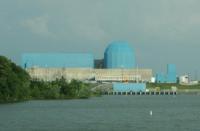
Clinton nuclear security officers working for Exelon at Clinton Power Station have voted on 8 May 2019, to ratify their first contract with the National Union of Nuclear Security Officers NUNSO / LEOSU.
-
-
The U.S. drinking water supply is mostly safe, but that’s not good enough
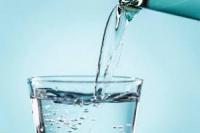
Most Americans take clean drinking water for granted as a convenience of modern life. The United States has one of the world’s safest drinking water supplies, but new challenges constantly emerge. As a scientist specializing in water quality, I believe water providers and regulators can’t afford to be complacent.
-
-
Rising seas threaten Australia’s major airports – and it may be happening faster than we think
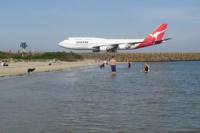
Most major airports in Australia are located on reclaimed swamps, sitting only a few meters above the present-day sea level. And the risk of sea level rise from climate change poses a greater threat to our airports than we’re prepared for. Given the significant disruption cost and deep uncertainty associated with the timing of sea level rise, we must adopt a risk-based approach which considers extreme sea level rise scenarios as part of coastal infrastructure planning.
-
-
Rural areas more vulnerable to sea-level rise
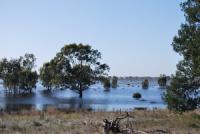
Type “sea-level rise” in an internet search engine and almost all the resulting images will show flooded cities. But there is a growing recognition that sea-level rise will mostly impact rural land–much of it privately owned—where existing knowledge is insufficient o best inform private and public decisions on how to cope with the threat.
-
-
Antibiotics found in some of the world's rivers exceed “safe” levels
Concentrations of antibiotics found in some of the world’s rivers exceed “safe” levels by up to 300 times, the first ever global study has discovered. Researchers looked for 14 commonly used antibiotics in rivers in 72 countries across six continents and found antibiotics at 65 percent of the sites monitored.
-
-
Coal-fired power plants may affect your drinking water
When you get a drink of water from your fridge or sink, do you think about where that water came from? A new study takes a national look at whether coal-fired power plants are unintentionally affecting drinking water treatment plants.
-
-
Can we prepare for climate impacts without creating financial chaos?
Likely sooner than we think, the destruction that warmer global temperatures are inflicting — through record floods, wildfires, droughts, and hurricanes — could physically overwhelm our ability to maintain many communities in their existing form. Communities face a tricky dilemma as climate changes: How to prepare for impacts without scaring away homeowners and investors and setting off a damaging economic spiral.
-
-
Google cuts Huawei access to Android software updates
Google said on Sunday it was rescinding Huawei’s license to use Google’s mobile phone operating system Android, and Google services such as Google maps and YouTube. The move will force the Chinese technology company to rely on an open-source version of the software. The move follows a presidential executive order prohibiting American companies from using telecommunications equipment made by “foreign adversaries” viewed as posing a threat to U.S. national security.
-
-
Why Huawei security concerns cannot be removed from U.S.-China relations
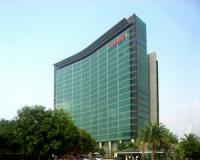
Huawei’s role in building new 5G networks has become one of the most controversial topics in current international relations. The U.S. is exercising direct diplomatic pressure to stop states from using the Chinese telecoms giant. The U.S. government regards Huawei as a clear and present danger to national security and argues that any ally opting for Huawei will compromise vital intelligence sharing among these countries in the future.
-
-
Cities can save lives, resources by using a vulnerability reduction scorecard
A new planning tool enables communities to effectively reduce their vulnerabilities to hazards across their network of plans – including transportation, parks, economic development, hazard mitigation, emergency management and comprehensive land use.
-
-
Bolstering cyber resilience
In December 2015, the first known successful cyberattack on a power grid was carried out in Ukraine, disrupting the electricity supply for hundreds of thousands of customers for several hours. Since then, concerns have grown across the globe about the potential public health, economic and security impacts of widespread power outages in heavily populated regions. Argonne partners with World Economic Forum in important cyber resilience effort.
-
-
Dutch aquifers bank rainwater to help farmers keep the water running

Climate change is increasing the risk of water shortages across Europe, but researchers in the Netherlands are hoping to ease pressure by generating a steady supply of clean water and heat from deep underground reservoirs known as aquifers.
-
-
Wandering Earth: rocket scientist explains how we could move our planet
In the Chinese science fiction film “The Wandering Earth,” recently released on Netflix, humanity attempts to change the Earth’s orbit using enormous thrusters in order to escape the expanding sun – and prevent a collision with Jupiter. The scenario may one day come true. How could we go about it and what are the engineering challenges?
-
-
The fundamental challenges of living with wildfire
Wildfires can have dramatic impacts on Western landscapes and communities, but human values determine whether the changes caused by fire are desired or dreaded. This is the simple - but often overlooked - message from a collaborative team of researchers.
-
-
Public dread of nuclear power sets limits on its use
Nuclear power has been a part of the American energy portfolio since the 1950s, but for a number of reasons, the general public has long felt a significant dread about it.
-
More headlines
The long view
Helping Strengthen America’s Critical Infrastructure
Everyday life depends on a robust infrastructure network that provides access to running water, communications technology and electricity, among other basic necessities. The experts who keep our national infrastructure secure and resilient also need a strong network to share their knowledge and train the next generation of professionals capable of solving complex infrastructure challenges.
AI and the Future of the U.S. Electric Grid
Despite its age, the U.S. electric grid remains one of the great workhorses of modern life. Whether it can maintain that performance over the next few years may determine how well the U.S. competes in an AI-driven world.
Using Liquid Air for Grid-Scale Energy Storage
New research finds liquid air energy storage could be the lowest-cost option for ensuring a continuous power supply on a future grid dominated by carbon-free but intermittent sources of electricity.
Enhanced Geothermal Systems: A Promising Source of Round-the-Clock Energy
With its capacity to provide 24/7 power, many are warming up to the prospect of geothermal energy. Scientists are currently working to advance human-made reservoirs in Earth’s deep subsurface to stimulate the activity that exists within natural geothermal systems.
Experts Discuss Geothermal Potential
Geothermal energy harnesses the heat from within Earth—the term comes from the Greek words geo (earth) and therme (heat). It is an energy source that has the potential to power all our energy needs for billions of years.
